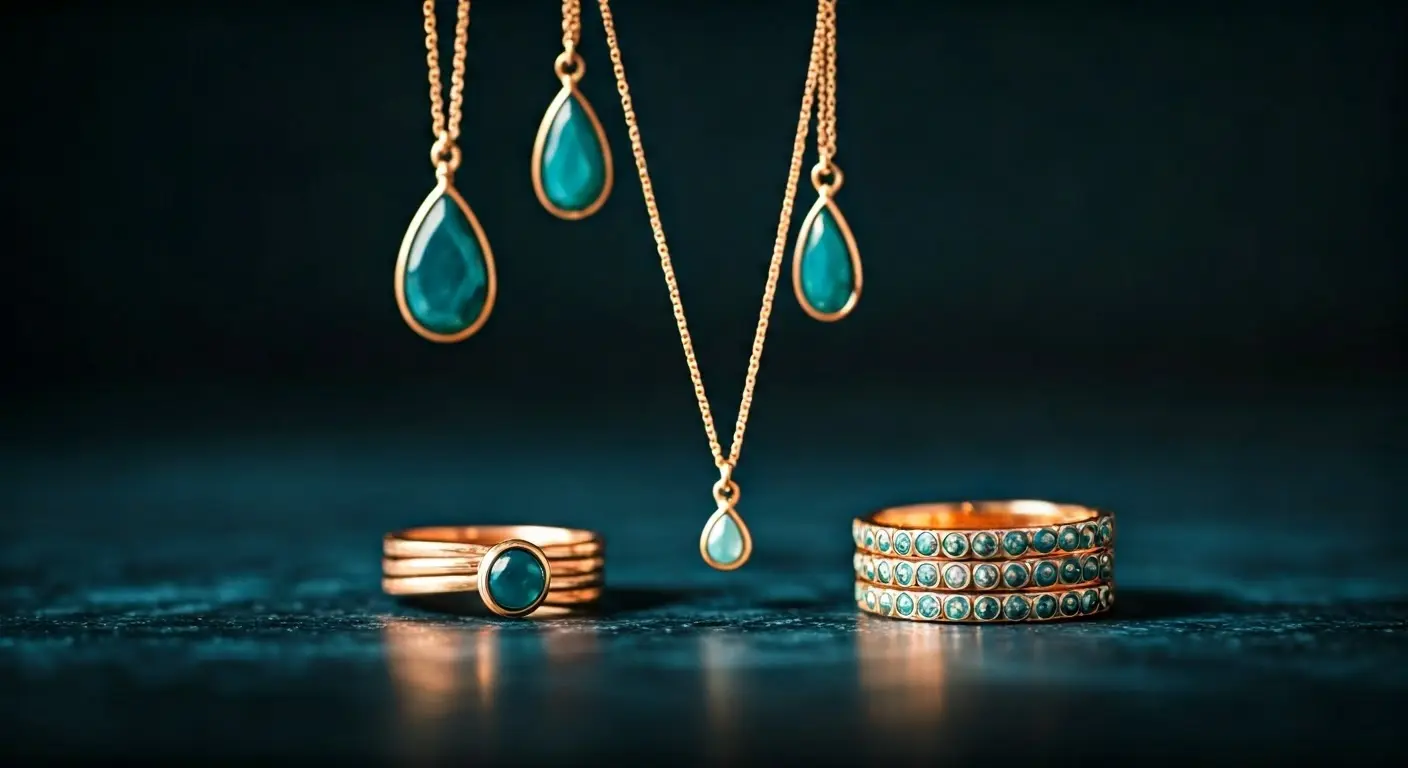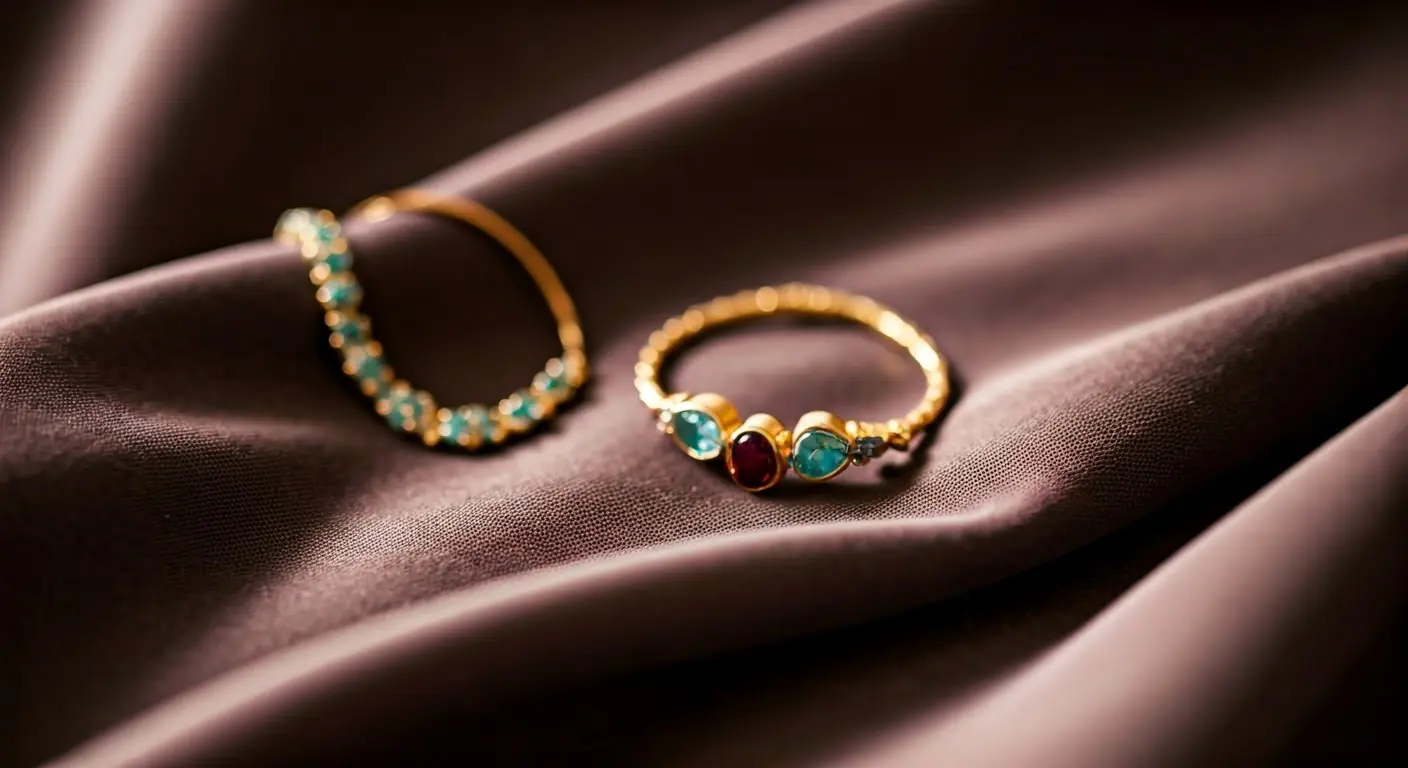
Introduction
The shiny appeal of precious metals, especially in the jewellery industry, hides a more serious truth. That truth includes the social and environmental effects of how these metals are mined. Ethical sourcing and sustainable sourcing have become very important. It focuses on responsible mining practices and better supply chains in the precious metals sector. This article shines a light on the challenges of ethical sourcing. It examines why it matters and how it affects communities, the environment, and the entire industry.
Understanding Ethical Sourcing in the Precious Metals
Ethical sourcing for precious metals means taking a careful approach. It focuses on responsible mining along with social responsibility and environmental protection. The goal is to reduce the harm caused by mining while ensuring that it has minimal impact on the environment. At the same time, it aims to support the people and communities that are part of the supply chain.
Defining Ethical Sourcing and Its Importance
Ethical sourcing means getting precious metals from places that follow responsible mining practices. These practices include following strict environmental rules and treating workers somewhat. It also respects the rights and well-being of mining communities.
Ethical sourcing in gold mining is essential because it can change the precious metals industry. It supports transparency and accountability in the supply chain. This allows consumers to make better choices when buying. It also encourages mining companies to upgrade their practices. This helps create a more sustainable and socially responsible gold mining industry.
The Impact of Precious Metals Mining on Communities and the Environment
Precious metals can significantly affect mining communities and the local environment. If done carelessly, mining can force indigenous people off their land, pollute water sources with harmful chemicals, and damage ecosystems.
Also, human rights violations happen often in this industry. Unsafe working conditions, along with forced or child labour, are serious issues linked to unfair work conditions. These problems continue with social injustices and economic gaps. This shows how important it is to focus on ethical sourcing to protect the vulnerable people in these communities.

The Dark Side of Precious Metals: Unethical Practices Uncovered
The final product might shine, but getting precious metals from the mine to the market can involve a lot of bad practices. Sadly, many mining operations, especially in artisanal and small-scale mining (ASM), focus more on making money than responsible practices. This lack of care for social issues and the environment keeps going and causes more harm and exploitation.
The Role of Child Labor in Mining Operations
A sad part of the unethical sourcing of precious metals is child labour. Many families living in mining communities are so poor that they have no choice but to send their kids to work in dangerous mining operations, risking serious health consequences. Some children are as young as nine years old. They work hard, face toxic chemicals like mercury, and risk serious injuries, all for very little pay.
Using child labour is a clear violation of human rights. This practice removes children's chances for education, health, and a safe childhood. These actions often get hidden in complex supply chains, making it hard to trace where precious metals come from and hold those responsible accountable.
Environmental Degradation Due to Unregulated Mining
Unregulated mining operations cause many environmental problems. The use of harmful chemicals like cyanide and mercury can lead to water pollution. This pollution affects both people and fish. When mining waste is not disposed of properly, it also taints the soil and water sources.
Mining for valuable metals often results in deforestation. This leads to the loss of habitats and is a threat to wildlife. Additionally, mining activities create a large carbon footprint, worsening climate change. Because of this, we need to include sustainable practices in the industry.

The Journey Towards Ethical Sourcing
The push for ethical sourcing in the United States is growing. People are becoming more aware of where their jewellery comes from. They want to know more about it. In response, many new rules and programs aim to enhance how things are done and support the responsible sourcing of precious metals.
Initiatives and Regulations Promoting Responsible Mining
Organizations like the Responsible Jewellery Council (RJC) are working hard to promote ethical sourcing. The RJC sets strict rules for responsible business actions throughout the jewellery supply chain. These rules cover human rights, labour standards, environmental concerns, etc.
Certification programs like Fairtrade Gold provide extra trust for buyers. Fairtrade Gold makes sure that miners get fair prices for their gold. This support helps them invest in their communities and improve their lives. Also, the Kimberley Process Certification Scheme (KPCS) works to stop the trade of conflict diamonds, also called blood diamonds.
Key Challenges in Achieving Ethical Sourcing
While there have been improvements, there are still issues to solve for the entirely ethical sourcing of the world’s gold and other precious metals. The global supply chains are complex. This makes it hard to see what is happening and to keep track of practices at each step. Artisanal and small-scale mining, essential for local economies, is also hard to regulate. These operations are often informal and spread out.
Also, smaller mining operations sometimes lack training and resources. This can stop them from using responsible practices. To tackle these problems, we need everyone to work together. This includes governments, companies, and consumers in the industry.

Ethical Alternatives for Precious Metals Consumers
The more people learn about ethical sourcing, the more they want different choices in the precious metals market, as highlighted by a recent survey. Many consumers prefer sustainable and ethically made options. They choose recycled precious metals and lab-grown alternatives instead of newly mined materials.
The Rise of Recycled and Lab-created Metals
Choosing recycled precious metals can significantly reduce environmental harm from your jewellery. These metals come from electronic waste and used products and are cleaned and processed. This creates new pieces without needing more mining.
Here are some good reasons to think about using recycled and lab-created metals:
- Recycled Content Certification: Check for marks like "Recycled Silver" or certifications from the Responsible Jewellery Council. These confirm where the metal comes from and it's ethical standards.
- Lab-created Metals: These metals are the same as mined ones but have a smaller carbon footprint. They also help avoid problems related to human rights.
- Lower Carbon Footprint: Choosing recycled and lab-created metals means less need for mining. This helps reduce carbon emissions and protects the environment.
How to Verify the Ethical Credentials of Your Jewelry
Navigating the details of ethical sourcing is essential for consumers. Don't hesitate to ask where the metals come from and what the company does to be responsible. By asking these questions, you help encourage transparency and accountability in the industry.
Look for jewellers and brands that share their information about supply chains, labour practices, and care for the environment. When you support businesses focusing on ethical sourcing, you send a strong message and help create a better jewellery industry with a positive impact.
Check for certifications from trusted groups like the Responsible Jewellery Council or Fairtrade Gold. These certifications show that the metals are sourced responsibly, following specific environmental, social, and ethical standards.
Spotlight on Ethical Jewelry Brands Leading by Example
More jewellery brands are now supporting ethical sourcing, improving the industry. These brands focus on being transparent about their practices, tracking their materials, and using responsible methods. When consumers support businesses that follow ethical sourcing, they help create positive change in the industry.
Brand Profiles: Commitment to Ethical Practices
The following table highlights three brands demonstrating a commitment to ethical sourcing:
| Brand | Commitment to Ethical Practices |
| Brilliant Earth | Uses recycled precious metals and ethically sourced gemstones. Partners with suppliers committed to fair labor practices and environmental responsibility. |
| Fairmined | Supports artisanal and small-scale mining communities by providing them with fair prices, technical assistance, and environmental training. |
| Aurate | Prioritizes transparency by tracing the origin of its gold back to the mine and uses recycled materials whenever possible. |
The Importance of Transparency in the Supply Chain
Transparency in the precious metals supply chain is essential for ethical sourcing. It helps consumers track where the metals come from. They can also learn about mining practices and check their purchases' social and environmental impact. When companies are open about how they source their materials, it creates accountability. This helps customers make better choices.
Seeing how supply chains work can reveal bad practices and inspire positive change in the industry. When consumers ask for transparency, they encourage businesses to focus on ethical sourcing and responsible mining.
Taking Action as a Consumer
As customers, we have a substantial impact on the precious metals industry. When we learn about the issues and ask the right questions, we can hold companies accountable for how they operate. This encourages them to focus on ethical sourcing. Let’s use our buying choices to push for positive change. Together, we can play a vital role in helping to create a more sustainable future.
Questions to Ask Before Purchasing Precious Metals
Before you buy jewellery or other items made with precious metals, it's good to ask these questions:
- Where do your precious metals come from?
- Can you share details about your supply chain and show that the metals are sourced ethically?
- Do you have certifications like those from the Responsible Jewellery Council that prove your ethical practices?
Asking these questions shows you care about making responsible choices. Talking with jewellers sends a strong message. It indicates that people are more aware of where their items come from and want transparency.
How to Support Ethical Practices in the Jewelry Industry
Consumers can do more than ask essential questions. They can take extra steps to support good practices. For example, picking jewellery from recycled metals reduces the need for newly mined materials. Backing brands that promote transparency and ethical sourcing encourages positive change in the jewellery industry.
Also, talk to friends and family about why ethical sourcing matters. We can push for a more sustainable and ethical jewellery industry by encouraging responsible practices and sharing information.
Conclusion
Ethical sourcing of precious metals, including ethical gold, is essential for the health of communities and the planet. When consumers choose recycled or lab-created metals, they help create a more sustainable jewellery industry. It's also vital to have a transparent supply chain and to check ethical credentials. As buyers, we should ask the right questions before buying and support brands that focus on ethical sourcing. Together, we can work for a future where ethical sourcing, like ethical gold, is standard and ensure the jewellery industry is brighter and more responsible for years to come.
References:
https://www.hrw.org/report/2015/06/10/precious-metal-cheap-labor/child-labor-and-corporate-responsibility-ghanas
https://marketplace.mercata.blockapps.net/login/
3-Frequently Asked Questions
What is considered ethical sourcing in the context of precious metals?
Ethical sourcing is about getting precious metals from places that focus on responsible mining. It aims to protect the environment and support social responsibility. This means treating workers and communities somewhat and looking out for their well-being. Ethical sourcing looks at the whole supply chain and works to reduce harm to people and the planet.
How can consumers ensure their jewellery purchases support ethical practices?
Consumers should ask where jewellers get their materials, including whether they use ethical gemstones. They should look for certifications from groups like the Responsible Jewellery Council. It is essential to focus on transparency and traceability. Choosing recycled metals is another good way to support ethical sourcing.
What are some certifications to look for in ethically sourced metals?
Key certifications are Fairtrade Gold, the Responsible Jewellery Council (RJC) certification, the "Recycled Silver" mark, and the Kimberley Process for gemstones, as well as sterling silver. These certifications show a commitment to necessary social, environmental, and ethical standards.
Can recycled metals be a part of ethical jewellery sourcing?
Recycled metals play an essential role in ethical sourcing. When we use recycled metals, it helps reduce the demand for new mining. This, in turn, lowers the environmental impact and carbon footprint. It also supports a more circular economy in the jewellery industry.

 Prev Blog
Prev Blog 